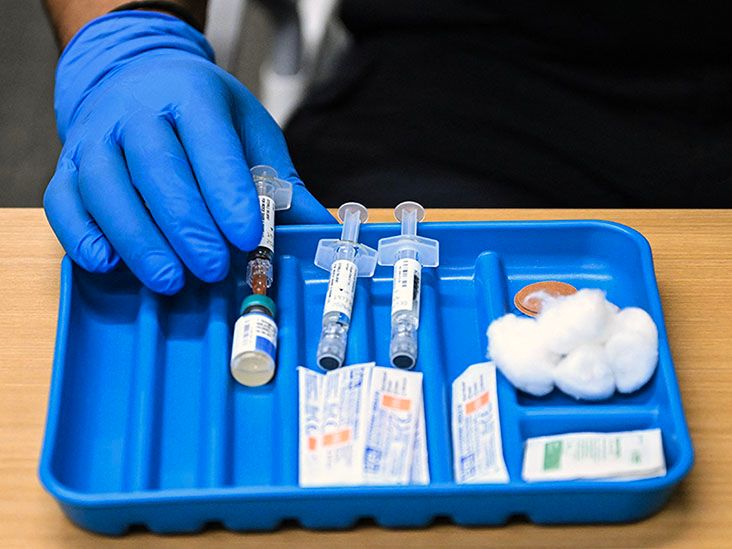A heart perfusion imaging scan, or myocardial perfusion scan, is a test that tells doctors how well a person’s heart pumps blood. Doctors may use this test when diagnosing the cause of chest pain or deciding on a treatment plan.
A heart perfusion imaging scan is a noninvasive diagnostic procedure to assess blood flow to the heart muscle. This scan can provide doctors with valuable information about a person’s heart function, especially during rest and periods of stress.
A doctor will inject a radioactive tracer into the bloodstream. As this travels through the heart, a special camera detects the tracer’s radioactive signals.
The camera creates images that show how well blood is reaching different regions of the heart. These images help doctors identify areas with reduced blood flow.
This article explains why doctors may want someone to have a heart perfusion scan, what to expect, and how to prepare.

Doctors may use this scan when diagnosing heart issues and deciding on appropriate treatment plans. Some situations where a heart perfusion scan might be necessary
Evaluating chest pain
If a person experiences chest pain, especially during physical activity or times of stress, doctors may recommend a heart perfusion imaging scan to understand the reason for the pain.
Angina is a type of chest pain that occurs when the heart does not receive enough oxygen. Coronary artery disease (CAD) can cause angina.
A heart perfusion imaging scan can help doctors understand whether chest pain is due to CAD or another cause.
Diagnosing coronary artery disease
CAD
Doctors may use a heart perfusion scan to assess the presence and severity of CAD.
Identifying ischemia
When diagnosing new heart failure, doctors
Doctors may use a heart perfusion imaging scan to determine whether ischemia is causing this reduced heart strength. Ischemia
Assessing damage after a heart attack
After a heart attack, a perfusion scan can assess damage to the heart muscle and help doctors identify areas with reduced blood flow, which can guide treatment decisions and rehabilitation plans.
Assessing the effectiveness of treatment
A heart perfusion imaging scan can also evaluate the effectiveness of certain cardiac treatments, such as coronary artery stenting or bypass surgery.
Doctors may use the scan months or years after a stent or surgery to check for new or repeat blockages that may require further treatment.
Performing preoperative evaluations
Doctors may recommend a heart perfusion scan before major surgeries or interventions if a person is at a higher risk of heart complications.
This scan can help doctors assess heart function and determine the best approach to manage any potential risks.
Monitoring heart health
Doctors may recommend periodic heart perfusion scans if a person has known heart conditions or if they are at risk of heart disease. Doctors can use the scans to monitor heart function and identify changes or progression in heart conditions.
Most people will not experience problems or complications following a heart perfusion imaging scan. However, doctors
Some people may require a stress scan, in which doctors use the imaging test to evaluate blood flow to the heart during exercise, such as when walking on a treadmill.
In rare circumstances, some people may experience side effects or complications from the medication and exercise necessary during a stress test, including:
- wheezing
- allergic reactions
- abnormal heart rhythm
- heart attack
However, a doctor will typically remain with people if a stress component is necessary. If a person experiences severe side effects due to the involved medication, doctors can provide reversal agents, which can reverse the effects of a drug.
People with severe asthma or chronic obstructive pulmonary disease (COPD) should let their doctor know before getting this test. People should also tell their doctor
People should follow the specific instructions given by their doctor before a heart perfusion imaging scan. This may include the following:
- discussing any current medications with the doctor, who may recommend that people stop taking medications such as beta-blockers or calcium channel blockers
- avoiding caffeine and nicotine before the test
- not eating anything for at least 4 hours before the test
- wearing comfortable clothing
- wearing appropriate footwear if the test requires exercise
According to the
During a resting scan, a doctor injects a small amount of a radioactive tracer into a vein in the person’s arm, which will travel through the heart.
Doctors then position a gamma camera over the person. This camera detects the radioactive signals emitted by the tracer and creates images of the heart at rest. The person must lie still with their arms above their head until the images are complete.
These images show how blood flows through different regions of the heart muscle. Doctors may take two images of the heart using different tracers.
Stress testing
If stress testing is involved, the person
- dobutamine
- dipyridamole
- adenosine
Imaging during exercise helps healthcare professionals evaluate blood flow to the heart during periods of increased demand.
A healthcare team will closely monitor the person’s vital signs, including their heart rate and blood pressure, to ensure their safety and well-being.
After a person reaches their peak activity level, they will undergo a rest test, in which pictures will capture their heart’s function as they lie still for 10–30 minutes.
Some people may need to complete the stress and resting scans on different days.
According to the
It is best to drink plenty of water after the scan to flush the radiation from the body.
A cardiologist will interpret the images obtained from the scan. They will assess the distribution of the radioactive tracer in the heart and identify areas of reduced blood flow or abnormalities.
The time it takes for results may depend on the medical facility, so people should always ask their doctors to manage expectations.
In some cases, the images obtained from the scan may be inconclusive, making it challenging to interpret the findings accurately. Doctors may recommend more scans or different types of testing to overcome this.
Heart perfusion imaging scans can provide doctors with valuable information about a person’s heart function during rest and periods of stress.
This information can guide appropriate treatment plans and interventions to manage someone’s heart health effectively.
The scan may take several hours, but


